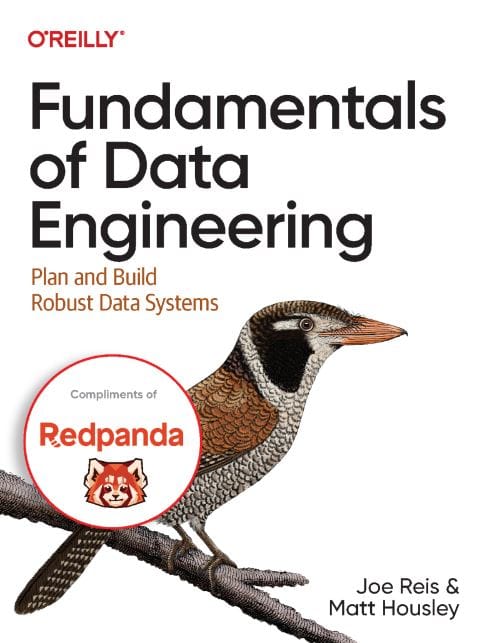A comparison of European tech hubs: Amsterdam, Barcelona and London

There are several tech hubs in Europe and I have had the privilege to have lived in three of them. Whilst London is far and away the main destination, there is a lot of subjectivity and lack of knowledge surrounding others. There is a high quality talent pool of engineers in other cities that have growing startup ecosystems and these fly under the radar.
I am writing this to share my experiences to help others become more aware of other opportunities and, hopefully, feel more brave in stepping out of their comfort zone by pursuing them.
The topics I cover are taxation, infrastructure, tech presence, housing, cost of living and culture.
Taxation
The biggest value proposition that Netherlands offers is the 30% tax ruling. This is offered to all foreigners on a highly-skilled migrant VISA for five years on a salary between about 39,000€-223,000€. It gives a tax-free allowance equivalent to 30% of your salary. The effect this has on your monthly income is huge. For example:
- If you earn 100,000€, then you earn 6,357€ after tax each month. Without the 30% tax ruling, it would be 4,973€. This means you earn 16,608€ (net) more annually.
- If you earn 80,000€, then you earn 12000€ (net) more annually.
You can experiment with the numbers from here.
Spain also has a similar scheme known as Beckham Law. As Beckham was one of the first to use it back in 2004, this is where the nickname derives from. This is also offered to all migrant workers for six years and means that they pay a flat tax rate of 24% (up to 600,000€). The normal tax rate is 19-45%. It is only worth applying for this if you expect to be on more than 60,000€ during the majority of your time in Spain.
To calculate the monthly take-home in Spain, you divide your annual income by twelve. This means that on 100,000€ you will take home 76,000€ annual - this is approximately 6,333€ a month.
The UK does not offer any similar scheme, however, you will pay less in tax than the other countries without the perks. It is pretty much the same as Netherlands with the tax ruling. If you earn £100,000, then you earn £5,526 after tax each month. If 1 GBP = 1.13 EUR, then this is equivalent to 6,267€. This is a difference of 90€ per month on the current exchange rate.
Infrastructure
Both EU cities have really good public transport infrastructure. Barcelona has a metro system, buses and bike lanes. There is also far more nature surrounding it - the south of the city ends with beaches at the sea and the north ends at mountains. However, getting around outside of the city may require a car.
In my opinion, Netherlands' infrastructure is the best in the world. The country is almost entirely flat and so the biking infrastructure really shines here. Even if it is extremely windy and raining, cycling is still my prefered mode of transport. This is a lot cheaper. You can also get to any other Dutch city with NS railway within an hour or two. Most locals don't even own cars unless they live in Almere (where families tend to stay).
London has a much larger and complex transportation system with the underground, overground and the iconic red double-decker buses. Getting around outside of the city will, again, often require a car as the trains are far more expensive nowadays.
In terms of crime, Amsterdam is one of the safest cities in the world whereas Barcelona, whilst pretty safe, is not in the same tier. More caution is needed due to pickpocketing in tourist hotspots and on the metros - never keep your wallet in your back pockets here.
London is more similar to Barcelona but crime rates vary by neighbourhood. There is more violent crime in London compared to Barcelona but less petty theft. However, it is still important to note that these two cities are extremely safe to live in.
Tech scene: companies & salaries
In Barcelona's startup scene, there are tech companies like N26, Glovo, New Relic, Skyscanner, Bumble and Adevinta. Apple have a presence but only for machine learning, whilst Amazon have recently opened up a hub. Microsoft also hire remote workers from this city. Salaries will range from 50,000-120,000€ for these companies.
Amsterdam's tech scene is bigger with high-paying tech companies like Facebook, Uber, Plaid, Databricks, Booking.com, Stripe, Adyen, Miro and Amazon. There are also HFTs such as Optiver, Flow Traders and IMC that pay extremely well. Salaries will range from 70,000-250,000€ for these companies.
Whilst both of those cities have highly skilled software engineers, the job market in London is significantly larger overall. There is a bigger HFT presence with Jane Street, Optiver and Two Sigma (bigger list can be found here). You also have the traditional big tech companies with Google, Facebook, Amazon, Apple, Palantir and Microsoft. The startup scene still includes companies like Monzo, Deliveroo, Revolut and Skyscanner. Salaries from these companies will range from £50,000 to £275,000.
Bureaucracy
Time sheets
In terms of the bureaucracy around work, one frustrating thing in Amsterdam is known as WBSO hours where you are required to log everything you do at the end of every week or so for your company to receive tax benefits via the research and development (R&D) scheme. In the UK, the R&D Tax Credit scheme does not require a submission of a timesheet.
In Spain, you are required to submit the hours worked but not what work you did - just a timesheet as this is a part of the labour laws. All employers are required to have records of this and it is not related to the R&D tax schemes. This is to prevent overworking employees.
Probation period
A probation period is standard in all countries to evaluate new employees before offering permanent employment. In practice, this is almost always just a formality. However, there is a non-zero percent of hires who do not make the cut in every industry. So I will explore this in the context of software engineering.
In Netherlands, most companies typically offer a 12-month temporary contract which gets turned into a permanent one at the end of it. Dutch law allows this to be up to two years. This is done because of the strict labour laws here for permanent employees, however, some companies offer permanent contracts straight away after a 2-month probation period anyway. If the contract is terminated during this period, it can be done without providing a reason but must be atleast one month's notice.
By contrast, Spain has probation periods that can be a maximum of up to six months for entry-level and two months for everyone else. If the contract is terminated during probation, then you are given at least fifteen days notice and no reason is required.
In the UK, the probation period can be can be up to 2 years also but 6 months is common. During this period, the contract can still be terminated without a reason as long as a week's notice is given. Additionally, you are not entitled to sick leave during this period.
Notice periods
As we have discussed the notice period from the employer's side, let's take a look at this from the side of the engineer.
In the Netherlands, a notice period must be until the end of the following calendar month. That means if I hand in my notice in on 31st December, my contract finishes on 31st January. However, if I hand my notice in on 1st December, then my contract still finishes on 31st January.
In the UK, a notice period is agreed in the employment contract and can be up to 6 months. Unfortunately, longer notice periods are becoming common. In practice, however, you can agree this with your manager to leave sooner. For example, my contract stated 3 months but I agreed to leave after 6 weeks with my manager.
In Spain, the notice period just has to be 15 calendar days. You can make this even longer if you want, the employee dictates how long they want it to be (up to 3 months maximum).
Housing
Whilst Amsterdam has a major political issue surrounding housing supply, all of these cities suffer from Airbnb presence and asset management firms buying up rentals.
You can typically find houses in all of these cities, however, the majority of the options are apartments. Especially in the two EU cities.
Renting a house in Barcelona by yourself often involves you paying a one-time fee of about 1500€ as agency fees in addition to a deposit.
Houses in Amsterdam have higher ceilings and were made with wooden frames until the 1980s when concrete became commonplace. By renting one made of wood that has a low energy rating, you are likely to have mice. A common expression here is: be glad you have mice because it means you don't have rats. Learning the difference between the two was not something I learned by choice.
If you are renting a one-bed apartment, the rental costs in Amsterdam will be higher by ~500€/month.
Where things are interesting are buying a house. In the Netherlands, you do not need a deposit to buy a house and a bank will lend you up to 5x your annual income for a mortgage. In Barcelona, you will need a 15% deposit and 4x your annual income. The houses can be also a bit cheaper in Barcelona.
Netherlands offers a 36% mortgage interest tax reduction so that, if you own a home, you get 36% of the interest you paid back. This only applicable to first time buyers.
In the UK, getting a mortgage requires a little more such as a good credit score (typically above 700). These scores are not centralised either and each company will have their own measure. You will also need a deposit here. There is also a Lifetime ISA scheme which means the government contribute a 25% bonus on a first-time house. You can contribute £4,000 every year to this.
You can do some investigation for Netherlands housing on funda.nl, and on the Spanish market on Idealista. The UK market will have this on Rightmove and Zoopla.
Cost of living
Barcelona is much cheaper in day-to-day than Amsterdam. However, you can budget the same in both. In Barcelona, I wouldn't need to stretch myself to spend a max of 750€ each month, whereas in Amsterdam, this was only possible if I was meticulous with my money. For example, a cup of coffee in Barcelona is about 1.40€ but in Amsterdam this is about 3-4€.
In London, housing is more expensive than Amsterdam. It is also much bigger and is divided into zones - the further out you are, the cheaper it is. However, this means that your commute time is much longer. Perhaps this is not much of an issue with the rise of remote working, however, it is worth noting.
One of the key benefits for Amsterdam is that I can cycle from one end to the other in 25 minutes whereas in London I would have to either buy a car or deal with a commute on public transport - both are far more expensive options than cycling.
Whilst the salaries in London can be higher than Amsterdam, it is harder to save due to transportation costs, and you spend more time and money on commuting.
Time off
In the UK, there are 28 minimum working days given to employees along with public holidays. In Spain, there are 22 minimum working days given, again, in addition to public holidays. In Netherlands, this is 20 working days.
In England, there are 8 public holidays and if they land on a weekend, then it rolls over into the following working day. The other two places do not do this. In Netherlands, there are 8.2 public holidays (Liberation Day is a day off every 5 years) and you work 9-5 in both of these countries.
Barcelona has 14 public holidays each year and, typically, 10-12 of these will be on working days. However, similar to Germany, you will be working 9am-6pm. For me, that extra hour made a big difference in my daily energy levels.
In Barcelona, during the summer, I experienced something known as Hora Intensiva (intensive hours). This is where you work reduced hours in the peak of summer. This can be done in different ways based on the company but typically it means that you only work 32-35 hours a week in those months. The UK and Netherlands do not offer this.
Culture
London is the most populated city in Europe (after Istanbul and Moscow). However, Barcelona is the most densely populated EU city with a tech presence. Amsterdam has a much more small city feel to it in this regard - I actually know my neighbours here.
In all of the major Dutch cities, almost everyone speaks in English. Although I highly recommend learning the language anyway, it is not a requirement to survive in the cities. However, in Barcelona, you will definitely need to learn Spanish to settle in. I consider Barcelona to be the major cosmopolitan city for South Americans whereas Amsterdam is the major cosmopolitan city for the Anglosphere. In terms of overall diversity of cultures, London is in a league of its own.
In Spain, you are also entitled to a free full health checkup when you start a job. I did this on company time in my first couple of weeks in the country. A common perk is also to receive free private medical insurance from your company - for me it was with Cigna. In Netherlands, however, you are required to pay for health insurance which costs 100€/month approximately. The company perk here is typically just a 2% discount on your health insurance. In the UK, private health insurance is becoming more common due to underfunding of the National Health Service (NHS), where getting an appointment is becoming increasingly difficult.
Another major difference is that almost every shop is closed on Sundays in Barcelona (including supermarkets). This is not the case in Netherlands or the UK. This was a major difference for me.
Finally, the obvious one: climate. London is gloomy and grey. Amsterdam is rainy, windy and cold whereas Barcelona is sunny and has a lot of beaches. In Barcelona, I could walk around in a t-shirt in January evenings. In Amsterdam, I was wearing a fleece in May. London, however, has the most favourable weather in the UK.
Summary
The different tech hubs are subject to different requirements due to variations in legislation, climate and other factors. Compared to the US, the lack of centralisation and the large variety in culture and history has led to different scenarios across each of these places in Europe.
Whilst it can be quite hard to navigate the differences, if you have made it this far, then I hope my experience and learnings from the above can provide some helpful information in making a decision.
If this was useful, you can find me on LinkedIn or Mastodon. :)




Comments ()